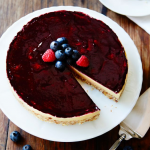Last updated on February 15th, 2024
Sometimes it’s the smallest of things that makes the biggest difference and this couldn’t be more accurate when describing the mineral zinc. This tiny substance is a vital cog in the machinery of human health, wielding an influence far greater than its humble presence might suggest. Used in over 300 biochemical processes in the human body, zinc is a key player in the immune system, digestion, cholesterol metabolism, liver health, stress response and fertility.
When it comes to men’s health, zinc plays a key role in processes that ensure vitality and robust immune function plus the maintenance of muscle strength and mental sharpness.
Zinc and testosterone
Zinc plays a crucial role in maintaining healthy testosterone levels, a hormone that governs not just sexual health but also affects muscle mass, bone density, mood and motivation. A deficiency in zinc can lead to a dip in testosterone levels, with potential impacts ranging from reduced libido to decreased physical stamina and lethargy.
Zinc and the prostate
Prostate health is of paramount importance, particularly in ageing men. Zinc, with its anti-inflammatory properties, is integral to prostate well-being. It may help in reducing the risk of conditions like Benign Prostatic Hyperplasia (BPH), characterised by an enlarged prostate. Regular zinc intake can be beneficial both as a preventive measure and in managing existing prostate issues.
Zinc in protein synthesis
Zinc’s role extends to the synthesis of proteins, essential not only for athletes but for everyone. It facilitates the breakdown of dietary protein into amino acids and their subsequent reconstitution into bodily proteins. This process is vital for muscle strength, cell repair, immune function, liver and overall health. Thus, optimal zinc intake is imperative for effective protein utilisation and creation in the body.
Zinc for hair health
Zinc’s importance in protein synthesis also benefits hair health, particularly for men concerned with hair thinning and loss. It aids in the production of keratin, a key protein for strong hair. Insufficient zinc can lead to weakened hair structure, exacerbating hair loss. Therefore, maintaining adequate zinc levels is crucial for hair vitality.
Zinc and reproduction
Zinc is also a linchpin in reproductive health, vital for the creation and maturation of sperm. Part of sperm structure literally relies on zinc. The mineral’s antioxidant properties help to protect these cells from oxidative stress, thereby maintaining their quality and viability.
Zinc and immunity
Beyond reproductive health, zinc is a stalwart supporter of the immune system. It orchestrates the body’s defensive mechanisms against infections and aids in wound healing. This is particularly pertinent in an age where our immune system has more to deal with than ever due to the myriad pollutants in our environment (in foods, drinks, air pollution, for example) coupled with consistent less nourishing lifestyle choices.
Zinc for mental health
Zinc also plays a crucial role in maintaining men’s mental health. Zinc is an essential nutrient for a healthy mood and there is robust evidence that it is beneficial in states of low/depressed mood. It’s not just the body that zinc fortifies, but also the mind.
Zinc for healthy cholesterol metabolism
Cholesterol is the building block of many hormones, including testosterone. Through a series of biochemical reactions, cholesterol gets converted into progesterone, estrogen, testosterone and cortisol. But in order for cholesterol to be efficiently converted into a hormone it requires zinc. If we don’t have optimal levels of zinc, the conversion of cholesterol into hormones can’t occur efficiently. In this way, particularly if linked with low testosterone, high blood cholesterol can be an indicator for zinc deficiency.
Unfortunately, these days, zinc is not as readily available in our food as it once was. The best source is oysters (do your best to ensure they are harvested from clean waters) – famously the poster child for zinc –. Next best are red meats– beef and lamb, while smaller amounts are found in eggs and seeds, like sunflower seeds. It’s important to note that zinc from plant sources is less readily absorbed due to the presence of phytates so those following a vegetarian or vegan way of eating will need to be particularly mindful of their intake.
The recommended dietary intake (RDI) for zinc varies by age and gender. Adult men need 14 mg per day, just to prevent deficiency so it has become a common nutrient insufficiency. While the body doesn’t need an enormous amount of zinc, consistent, daily intake is vital, as it is it used for so many important functions that it can easily be depleted, leading to symptoms that significantly detract from someone’s quality of life.









